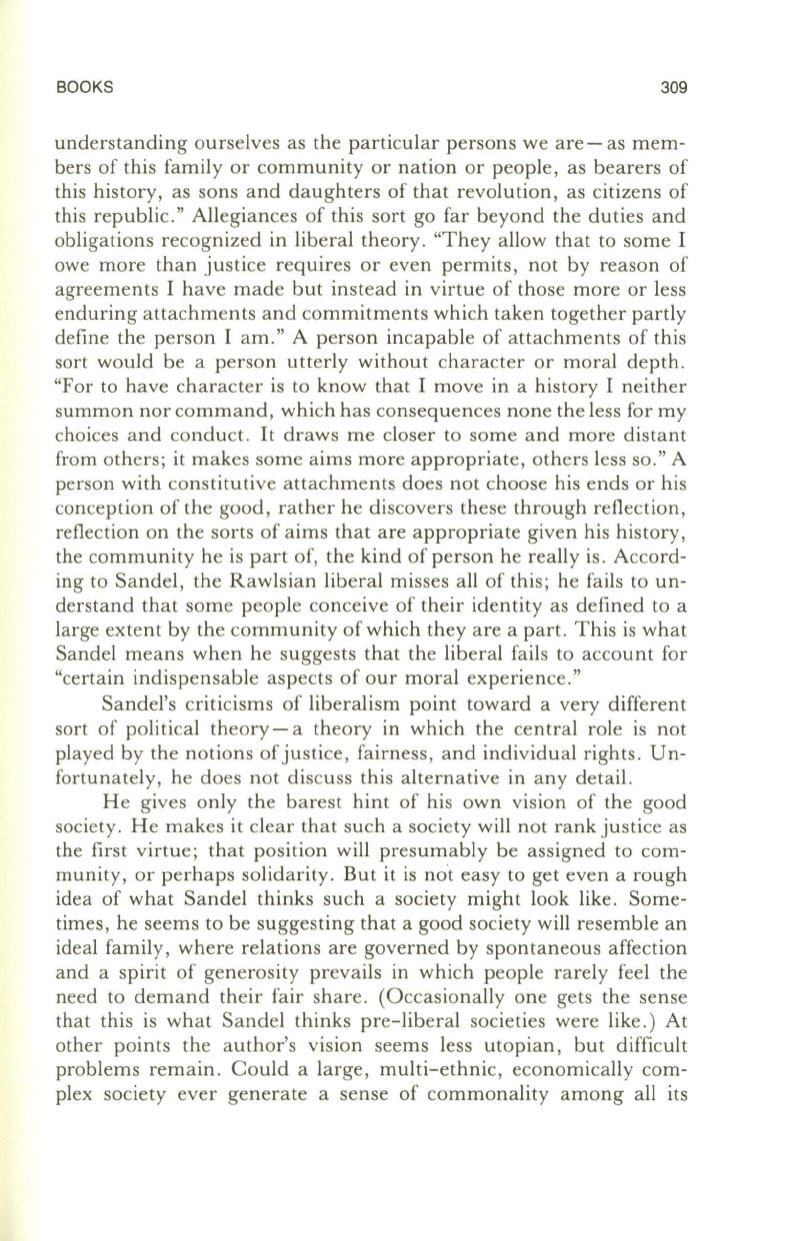
BOOKS
309
understanding ourselves as the particular persons we are - as mem–
bers of this family or community or nation or people , as bearers of
this history, as sons and daughters of that revolution, as citizens of
this republic ." Allegiances of this sort go far beyond the duties and
obligations recognized in liberal theory. "They allow that to some I
owe more than justice requires or even permits, not by reason of
agreements I have made but instead in virtue of those more or less
enduring attachments and commitments which taken together partly
define the person I am." A person incapable of attachments of this
sort would be a person utterly without character or moral depth .
"For to have character is to know that I move in a history I neither
summon nor command, which has consequences none the less for my
choices and conduct. It draws me closer to some and more distant
from others; it makes some aims more appropriate, others less so." A
person with constitutive attachments does not choose his ends or his
conception of the good, rather he discovers these through reflection,
reflection on the sorts of aims that are appropriate given his history,
the community he is part of, the kind of person he really is . Accord–
ing to Sandel, the Rawlsian liberal misses all of this; he fails to un–
derstand that some people conceive of their identity as defined to a
large extent by the community of which they are a part. This is what
Sandel means when he suggests that the liberal fails to account for
"certain indispensable aspects of our moral experience."
Sandel's criticisms of liberalism point toward a very different
sort of political theory - a theory in which the central role is not
played by the notions of justice, fairness, and individual rights . U n–
fortunately, he does not discuss this alternative in any detail.
He gives only the barest hint of his own vision of the good
society . He makes it clear that such a society will not rank justice as
the first virtue; that position will presumably be assigned to com–
munity, or perhaps solidarity. But it is not easy to get even a rough
idea of what Sandel thinks such a society might look like. Some–
times, he seems to be suggesting that a good society will resemble an
ideal family , where relations are governed by spontaneous affection
and a spirit of generosity prevails in which people rarely feel the
need to demand their fair share. (Occasionally one gets the sense
that this is what Sandel thinks pre-liberal societies were like .) At
other points the author's vision seems less utopian, but difficult
problems remain . Could a large, multi-ethnic , economically com–
plex society ever generate a sense of commonality among all its


